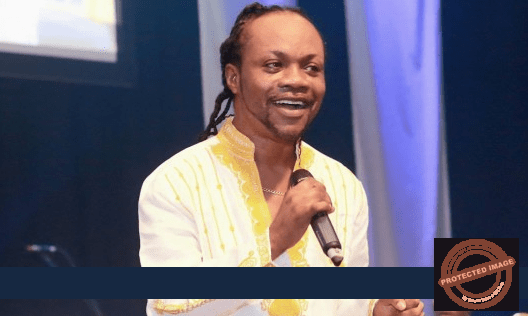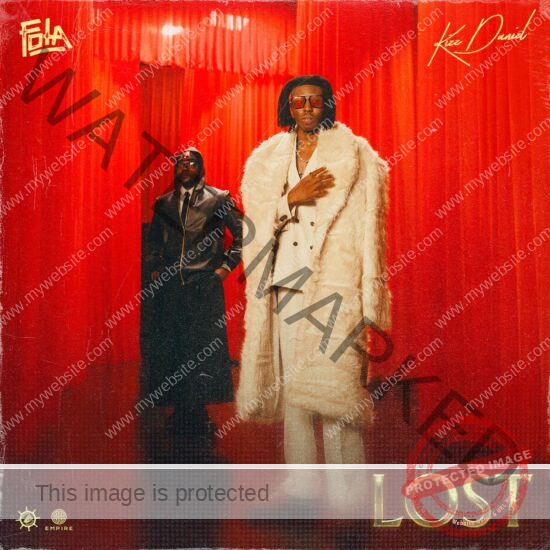Daddy Lumba Net Worth 2025, Biography, Family Life, and Career Journey

Daddy Lumba net worth is estimated to be around $16 million as of 2025. He possesses a personal studio where all of his work is done and also owns an array of exclusive machines for mastering, duplicating cassettes, and loading, printing, and shrink-wrapping works that he creates. His music has changed over the years to adapt to the public’s shifting tastes and demands; he would now be most accurately described as a contemporary high-life artist. Daddy Lumba has also won several Ghana Music Awards and other awards for excellence; his appeal is broad among the young and the old.
Biography
Daddy Lumba and Ghanaian music are one and the same. The legendary artist was born Charles Kwadwo Fosu on 29 September 1964 and has won the hearts of many people locally and globally due to his excellent highlife/hiplife craftsmanship. Daddy Lumba’s songs will forever have their spot on the playlists of many people because that is the impact that he has on his fans. This might be an old article, but this guide provides a detailed account of why Daddy Lumba is an important figure as far as the music of Ghana is concerned.
Aside from dropping back-to-back hits that topped charts throughout his music career, many generations to come will continue to enjoy the songs of this legend. They all revolve around love, socio-economic issues, and his personal life, making them relatable to each and every one of his fans. Time will define just how well his music aged. Who else knows the lyrics to ’Aben Wo Ha’ or ’Yentie Obiaa’? Those might have been some great songs that you might have jammed to sometime in the past, and even future generations will find them easily accessible to jam to as well.
Daddy Lumba’s net worth is probably very enormous considering how long he has survived in the music business. Thanks to CD sales, the many shows that he played, as well as endorsement deals (if he had any), the popular musician must be swimming in some cool, hard-earned cash. He is a role model for all aspiring Ghanaian musicians who want to have a chance at succeeding in this tough and unforgiving music industry that we have over here. This also serves as a good indicator or measure of just how much Ghanaians are willing to pay to see Daddy Lumba perform or to listen to his music.
As every human is used to saying, ‘Charle, boys abrɛ. E hard roff!’ And yes, e dey hard. The same is true for musicians because they also go through a variety of hardships, which might affect their personal lives or even their artistry. One aspect that many people like to look at is the musician’s relationships, whether it be with a wife or the numerous girlfriends of the musician. When it comes to the family man Daddy Lumba, he has several children, and has balanced his work with his personal life so well that it has not even made it into the news recently. A wonderful man he is, isn’t he?
The Roots of a Music Legend
Charles Kwadwo Fosu, known as Daddy Lumba, is one of Ghana’s most celebrated musicians. He was born on September 29, 1964, in a town called Nsuta in the Ashanti Region. Daddy Lumba’s early life was marked by a rich cultural heritage, significant influences, and formative experiences. From a young age, Daddy Lumba was surrounded by artistic expression, highlife music, and the sounds of a family at play. This was Daddy Lumba as a child: crawling on the floor and learning how to speak; playing with his brothers and sisters; singing and dancing to tunes on cassettes, records, and radio; experiencing nature for the first time: the insects, the trees, the sunshine, the night skies. The rugged path of trials and tribulations that shaped his early life. The young man and teenager who performed music locally; perfected his skills and sound as an artist; and tried to make a name for himself before journeying to Accra. His life after moving to Accra and becoming a national icon. Daddy Lumba, as we have come to know, love, and respect, was created and shaped by these experiences.
A Journey Through Music and Fame
Daddy Lumba is the stage name of Charles Kwadwo Fosu, who was born on September 29, 1964, in the Ashanti Region, Ghana. Like most of the top musicians, he was born in the music city Kumasi. Young Lumba had a burning passion for music and in his youthful days back in Kumasi, he started exhibiting his talent by joining local bands in their performances.
Being part of the Boys Brigade Team in the late 80s gives you a good idea of how good he was and how far he has come. He released his first album, Aben Wo Ha, in 1990 which was a national hit his career as a musician kicked off afterward.
In his biography, he has released some of the best highlife and hiplife albums of all time. Music lovers in Ghana and other parts of the world absolutely love his style and lyrics. His unique voice and style of singing have won the hearts of many in the country.
He has been honored with top awards and has headlined artists to perform at some music festivals. He has performed outside Ghana and is revered by many around the world his fan base cuts across diverse age groups and countries around the world.
The Musical Legacy of Daddy Lumba
One of the most influential figures in contemporary Ghanaian music is the artist whose discography has shaped the landscape of the industry. His major albums, such as “Sankofa” and “Afrobeat Revolution,” showcase a blend of traditional Ghanaian sounds with modern influences, creating a unique musical identity. These albums feature hit songs that have topped charts and resonated with audiences both locally and internationally, solidifying his status as a leading figure in the genre.
His hit songs, including “Dance with Me” and “Ghana Love,” have not only garnered commercial success but also critical acclaim. These tracks often incorporate elements of highlife, hiplife, and Afrobeat, reflecting the rich musical heritage of Ghana while appealing to contemporary tastes. The infectious rhythms and relatable lyrics have made these songs anthems for a generation, further establishing his influence in the music scene.
Collaboration has been a significant aspect of his career, as he has worked with various artists across different genres. Notable collaborations with international stars like Wizkid and Burna Boy have expanded his reach and introduced Ghanaian music to a broader audience. These partnerships highlight his versatility and willingness to experiment, which has inspired many emerging artists in Ghana and beyond to explore cross-genre collaborations.
His contributions to the music industry extend beyond his own work; he has played a pivotal role in mentoring young talents and promoting Ghanaian music on global platforms. By participating in music festivals and cultural events, he has helped elevate the profile of Ghanaian artists, encouraging a new wave of musicians to embrace their roots while innovating within the industry.
Throughout his career, he has received numerous awards and recognitions, including the Ghana Music Awards and international accolades that celebrate his artistic achievements. These honors not only acknowledge his talent but also underscore his impact on the music industry, inspiring others to pursue their passion and contribute to the rich tapestry of Ghanaian music.
In summary, his major albums, hit songs, and collaborations have significantly influenced contemporary Ghanaian music. His ability to blend traditional sounds with modern elements, along with his commitment to supporting emerging artists, has solidified his legacy as a transformative figure in the industry. As he continues to create and innovate, his influence will undoubtedly shape the future of Ghanaian music for years to come.
Behind the Music: Daddy Lumba’s Family
Not only is Daddy Lumba known for his highlife music tours around the world, but he is also known to be a family person. Daddy Lumba’s wife and children known to the public are active in his life. He fights to keep his family life as private as possible, to prevent the said family from coming to harm. Unknown to many, Daddy Lumba is a happily married man who enjoys the company of his family. The children have grown to enjoy highlife music as a result of Daddy Lumba’s impact. Not only this, but the children have also translated highlife into other forms of music that young modern Ghanaians, and people around the world, can all enjoy in their own variation of jubilation. Together, the humble family fights to translate love, peace, and unity into modern Ghanaian songs.
The Financial Success of Daddy Lumba
Daddy Lumba, earns money primarily through 3 avenues. Music sales Concert tickets and merch sales Endorsements But by and large, he rakes in the most money from selling music. Today, he has released over 30 albums! He surely is not hurting in the music sales department.
Daddy Lumba has been a popular singer in Ghana since the 1990s. His near 3-decade career has made him an almost universally beloved figure.
The concert sales help his near-total household name status in the country turn into massive profits for him. While a relatively small country on its own, his international audience virtually doubles his profits.
A man in a position such as his is one that several corporations will want to be able to use to share the spotlight from. Every smart businessman or fortunate child born in a wealthy world knows that starting a corporation is the easiest way to make it big.
Services like endorsements give him simply more money to add to his depth of vaults. And so, he does the thing that I personally approve of every good artist doing, he jumps on the opportunity to make more money for himself, and he does. At least some of his rich ventures probably come from family members or close friends with good ideas looking to him to offer financial support. At least that’s what I would be doing in open advice for anyone to find, seek, and use to fill whatever needs they see are in the world that.”
“Daddy Lumba, a name synonymous with Ghanaian highlife music, has left an indelible mark on the cultural landscape of Ghana.” Indeed, Daddy Lumba has captivated an audience and influenced many a musician with his unique brand of highlife music one that draws on Ghana’s traditional rhythms and is also compatible with the latest sounds scorching youth subcultures. In a career spanning three decades, Daddy Lumba has evoked a sense of love, of familiar social themes, and of the lived experience of millions of Ghanaians.
A few important things should be noted when speaking about the legend of Daddy Lumba:
One, Daddy Lumba has been very “brave” in his career, as a performer and songwriter of highlife music. Daddy Lumba has taken the many risks that your favorite musical artists respect but also do not have the confidence or the versatile skill to take. Most young musicians are afraid of their peers looking at them in such disgust and spite, afraid to work with other popular artists for the first time, and generally afraid of the demands and rewards of a musical career beyond just standing in the recording booth and attempting to make music. Daddy Lumba is a multi-faceted figure in the cultural, ethnic, and intellectual history of Ghana whose central theme and the most absorbing preoccupation of all are the risks he deliberately, willingly, and joyously took.
Two, Daddy Lumba is so expressive and interpretive a performer that his stories are captivatingly real, not contrived or begging for attention our understanding of these stories cannot be separated from our understanding of the songs and of how the songs move the bodies of dancing Ghanaian men and women.
Three, Daddy Lumba’s music is primarily the music of life. Daddy Lumba’s vocals are as textured as thirst that can only be relieved by drinking water after a long walk, as clear as whispers in a quiet, intimate room, as vulnerable as your daughter is going to make you as a father, as compelling as the vision of a determined woman flirting with the quiet fellow at the party, and as reliable as your grandmother’s wisdom just as the richness of life is powerfully revealed in quotidian moments, so the grandeur, the significance, and inspiration of Daddy Lumba’s vocal melodies are powerfully measured in the spectacular phrasing, rhythmic articulation, and fine dynamics of his dance performances.
Four, remembering the songs of Daddy Lumba as personal or group nostalgic acts is a cross-cultural form of greeting in that country. There is something universal about wistfulness, the feelings of lovers, and personal nostalgia, something that all humans respond to.
Moreover, the cultural populism of Daddy Lumba’s music was anew in 1980s and 1990s portable radio (pop). The creative genius that is Daddy Lumba changed the sounds of local radio, and the most stubborn gatekeepers of radio had to accommodate this change or risk being left out of a historic jump into a new century. This is a kind of full, submerged music-plus-texture inheritance of Daddy Lumba’s music that is revelative of nothing so much as the vital things we desperately want to remember by deliberately associating them with the songs we remember. Celebrating a historic jump into a new century is part of the joy of remembering and (necessarily) looking back and of saying hello, goodbye, hello, and goodbye to this musical legend, Daddy Lumba.
ALSO READ: Becca Net Worth 2025: A Deep Dive into Her Biography, Family, and Career




![[DOWNLOAD] Working For My Good – Anny](https://gospelmusicbase.com/wp-content/uploads/2025/05/Working-For-My-Good-Anny.webp)